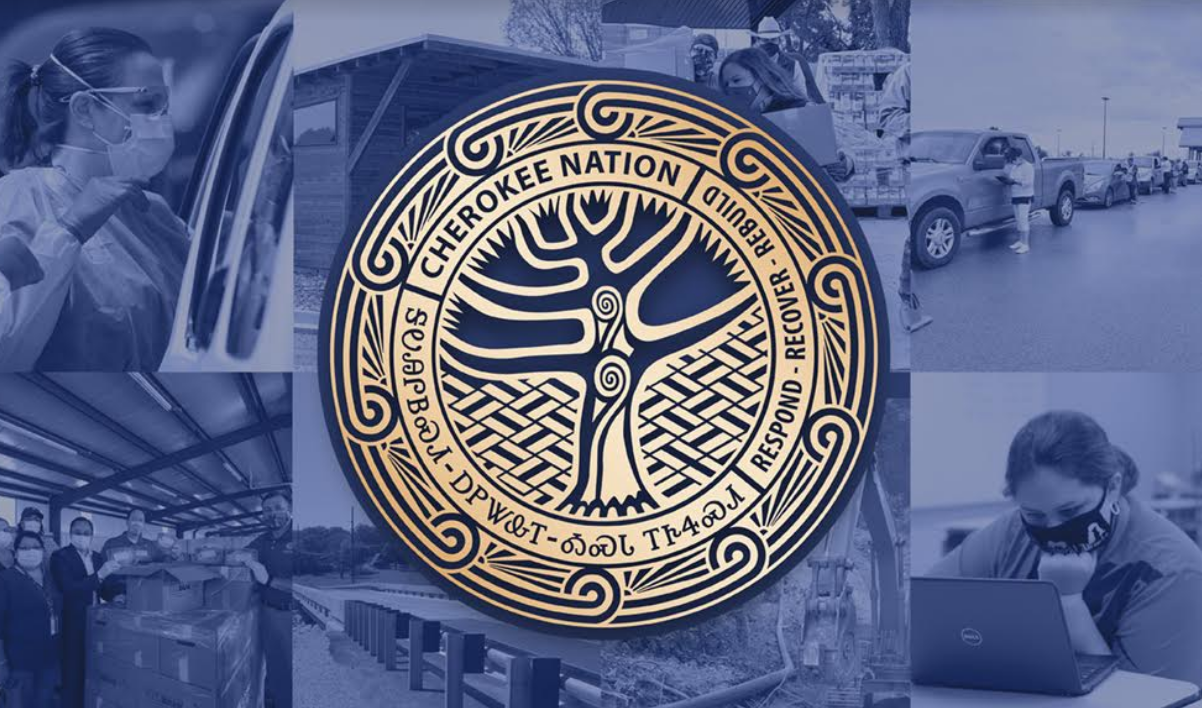
- Details
- By Native News Online Staff
TAHLEQUAH, Okla. — All 392,832 Cherokee Nation citizens will receive a $2,000 lump sum Covid relief individual assistance payment. The assistance payments will be available from a total of $1,8 billion provided to the Cherokee Nation from the American Rescue Plan that was signed into law by President Biden in March.
The legislation to approve the individual assistance payments was signed into law by Cherokee Nation Principal Chief Chuck Hoskin Jr. on Thursday.
Want more Native News? Get the free daily newsletter today.
“The Cherokee people are still hurting from the impact of Covid-19, health care and the economy and I appreciate those Council member leaders who came to us and said we should do a lump sum payment to extend our citizens relief,” Chief Hoskin said. “In this resolution, we will appropriate funds out of the $1.8 billion to cover the individual assistance payments to citizens and adopt a broad spending framework with categories as a place to start which can be modified as we move forward.”
The lump sum payments replaced a plan unveiled last week that would have provided $1,000 per year beginning this year and then another $1,000 given next year.
Tribal Councilors Mike Shambaugh and Joe Deere asked to amend the legislation saying citizens had expressed a preference for a lump sum of $2,000.
The amended resolution was approved by the Council of the Cherokee Nation and passed by a 16-1 vote during a special meeting shortly before Chief Hoskin signed it into law. Also passed was a budget approving spending for, among other items, the $2,000 per citizen payment. That budget measure which funds the $2,000 payments was approved by a 16-1 vote, with District 3 Councilor Wes Nofire being the lone dissenting vote.
Along with the direct relief to every Cherokee citizen, Chief Hoskin and Deputy Chief Bryan Warner’s spending plan includes mental health and wellness initiatives to help citizens recover from the impacts of the global pandemic, assistance for Cherokee-owned small businesses, opportunities to reinforce tribal health care services, improvement of infrastructure, and support for education, housing, job training and more for Cherokee families.
The American Rescue Plan Act provides a $20 billion set aside for tribal governments under the State and Local Fiscal Recovery Fund to help turn the tide of the pandemic, address the economic fallout, and build a strong foundation for recovery. This includes supporting immediate stabilization for households and businesses in Indian Country. An additional $12 billion in funds for tribal governments is also being set aside through Indian Health Service, the Bureau of Indian Affairs, the Department of Justice and other agencies.
The Cherokee Nation will begin launching applications for its Respond, Recover and Rebuild COVID-19 assistance through the tribe’s online Gadugi Portal. Applications for direct assistance are expected to be online in June. Pre-registering for the portal does not enroll citizens in the relief program, but citizens are encouraged to pre-register for the Gadugi Portal now to ease the application process later. The portal can be accessed at https://www.google.com/url?q=http://gadugiportal.cherokee.org&source=gmail&ust=1622242765786000&usg=AFQjCNEKjoNNYIAk8PPbntrfYdfaeowfqQ">gadugiportal.cherokee.org.
More Stories Like This
Native News Weekly (August 25, 2024): D.C. BriefsUS Presidents in Their Own Words Concerning American Indians
Flanagan Calls ICE Agents ‘out of control’ after Woman Killed in Minneapolis
American Indigenous Tourism Association Announces New Board Members
Deb Haaland Talks Youth, Jobs and Opportunity in Governor Bid
Help us defend tribal sovereignty.
At Native News Online, our mission is rooted in telling the stories that strengthen sovereignty and uplift Indigenous voices — not just at year’s end, but every single day.
Because of your generosity last year, we were able to keep our reporters on the ground in tribal communities, at national gatherings and in the halls of Congress — covering the issues that matter most to Indian Country: sovereignty, culture, education, health and economic opportunity.
That support sustained us through a tough year in 2025. Now, as we look to the year ahead, we need your help right now to ensure warrior journalism remains strong — reporting that defends tribal sovereignty, amplifies Native truth, and holds power accountable.
 The stakes couldn't be higher. Your support keeps Native voices heard, Native stories told and Native sovereignty defended.
The stakes couldn't be higher. Your support keeps Native voices heard, Native stories told and Native sovereignty defended.
Stand with Warrior Journalism today.
Levi Rickert (Potawatomi), Editor & Publisher

